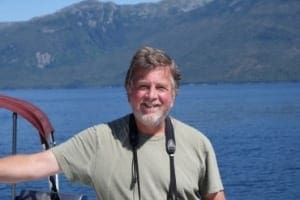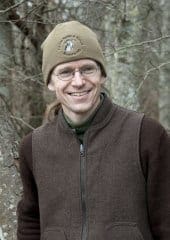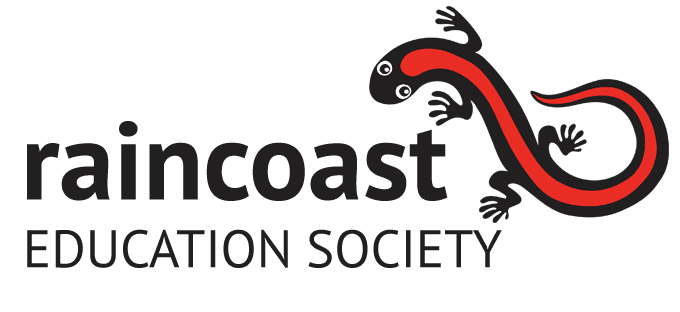2015 Raincoast Speaker Series
The 2015-2016 Raincoast Speaker Series (Sept 2015 – April 2016) is designed to provide public education opportunities that highlight important projects and ideas through a series of monthly lectures by some of the top environmental researchers and educators in the region. The goal of the speaker series is to provide high-quality, inspirational events that create awareness around key environmental issues in our region. Lectures will focus on topics ranging from marine and terrestrial ecology, to environmental stewardship and sustainability.
The 2015-2016 Raincoast Speaker Series is supported by Remote Passages, Long Beach Lodge, Jamie’s Whaling Station, Tofino Botanical Gardens, Ocean Outfitters, and Sea Wench Naturals.

John Ford
The deep waters off the edge of our continental shelf are home to over a dozen species of whales, dolphins and seals. Some species, like the poorly known beaked whales, lead mysterious lives over a kilometre beneath the surface, coming up only when they need to breathe. Some species are rare and others abundant, but most rarely seen by nearshore mariners. Join Dr John Ford as he describes these fascinating denizens of the deep, high seas.
Dr. John Ford is head of the Cetacean Research Program, Pacific Biological Station, Nanaimo, BC, and is also an adjunct professor in the Department of Zoology and Fisheries Centre, University of BC. Dr. Ford has been involved in field studies on cetaceans in western Canadian waters since 1977. His areas of research include the life history, ecology, behaviour and acoustic communication of cetaceans, especially killer whales. In recent years, his research has focused on the conservation status of cetaceans listed under Canada’s Species-at-Risk Act and has involved population abundance estimation and development of acoustic tools for determining seasonal abundance of cetaceans in remote offshore waters.

Dr. Thor Hanson
In an increasingly indoor, technology and media-focused world, we all need ways to find the nature around us every day. Learning about things like feathers and seeds can help us to do just that. These common wonders are touchstones to the natural world, telling us incredible stories about biology and evolution – nature, and our connections to it. Join award-winning author and biologist Thor Hanson for an eye-opening exploration of the nature of these everyday things. Learn how a classroom in Kansas changed the fundamentals of ornithology, what snakes have to do with seed collecting, and how to enjoy watching birds when you can’t remember their names.
Author and biologist Thor Hanson is a Guggenheim Fellow, a Switzer Environmental Fellow, and winner of the John Burroughs Medal. His books include The Triumph of Seeds, The Impenetrable Forest, and Feathers, which received the AAAS/Subaru Prize and a Pacific Northwest Booksellers Association Award, and was nominated for the Samuel Johnson Prize. Thor’s many media appearances have included NPR’s Fresh Air, PRI’s Science Friday and The World, and The Current on CBC. Hanson lives with his wife and son on an island in the Pacific Northwest.

Mark Maftei
When most people think of seabirds, they picture the familiar species found along BC’s shorelines and coastal waters…but what lies over the horizon? Some 40-50 miles off the coast of Vancouver Island the continental shelf drops off and an entirely different ecosystem begins, one populated by tens of millions of birds which call the open ocean home and rarely stray within sight of land. The pelagic waters of BC are part of a dynamic ocean environment in which shifting currents and strong upwelling attract and sustain huge numbers of seabirds. Some species breed nearby, while others travel from opposite ends of the earth to feed in the rich waters off the coast. Anybody who has spent time offshore will have caught at least a glimpse of some of these remarkable birds, but this talk will provide a behind-the-scenes look into their biology and ecology.
From Ellesmere Island in the Canadian High Arctic to South Georgia Island in the Southern Ocean, Mark’s passion for seabirds has taken him around the globe. Although he specializes in Arctic species, Mark’s recent work has focused on learning more about some of BC’s most interesting and enigmatic seabirds including rhinoceros and Cassin’s auklets – two species which breed and winter in our waters. Mark spent many years living in Bamfield and now resides in Victoria where he works for the Wildlife Research Division of Environment Canada studying colonial seabirds. In addition to his work with the government, Mark is also a founding member of the High Arctic Gull Research Group, a collaborative team of scientists currently conducting research on some of the rarest and least-known seabirds in the world.

Briony Penn
The Real Thing: The Natural History of Ian McTaggart Cowan is the official biography of early biologist/conservationist McTaggart Cowan, who was documenting biodiversity, climate change, logging, pesticides, and conservation issues before most of us were born. Briony will be coming to Tofino with specimens, some clips from his early TV shows that were the forerunner to Suzuki’s (who he first hired) The Nature of Things and the “fascinating” stories from his wildlife journals that span the entire province from Cleland Island to the Kootenays, species from Alces to Zapus and the full century that he lived through. His early days in Tofino in 1930 collecting with Kenneth Racey for the National Museum of Canada will be part of the evening’s presentation.
Briony Penn is a naturalist, broadcaster, educator, and writer well known across Canada. As a journalist, columnist and author, Briony has a publishing record of hundreds of articles for newspapers, magazines as well as books, government publications and peer-reviewed journals. She is also an artist and has exhibited and published widely on natural history themes. Briony is a pioneer of community mapping and has created numerous artistic community maps that have been replicated across North America and Europe.

Dr. Ian Perry
The oceanography and marine biology of the west coast of Vancouver Island is complex and diverse, with circulation patterns that change among seasons and between years with events such as El Nino. The result can be an extraordinary mix of both northern and southern plankton and fish species, which can have important consequences for the growth and survival of small migrating fish such as juvenile salmon. The year 2015 was particularly unusual, with record warm water temperatures, a very large algae bloom, and species rarely seen in BC. This talk with present what we know of the oceanography and marine ecosystem west of Vancouver Island, and how it changed in 2015.
Dr. Ian Perry is a research scientist with the Canadian Department of Fisheries and Oceans (DFO), at the Pacific Biological Station in Nanaimo, British Columbia. In addition, Dr. Perry is an Adjunct Professor at the Fisheries Centre of the University of British Columbia, and has taught courses on fisheries oceanography at universities in Canada, Chile, and Portugal. Dr. Perry holds a B.Sc. from the Department of Zoology, and a PhD from the Departments of Zoology and Oceanography, both from the University of British Columbia.

Bob McDonald
What is it really like to step into the abyss; to leap out into space with only the thin fabric of your suit between you and the universe? Join Bob McDonald for a colourful presentation on the only three Canadians to step outside the international space station and get a new perspective on planet Earth. Bob McDonald’s new book Canadian Spacewalkers will be available for sale at the event.
Bob McDonald has been the host of CBC Radio’s Quirks and Quarks since 1992. He is a regular science commentator on CBC News Network and science correspondent for CBC TV’s The National. He has been honoured with the 2001 Michael Smith Award for Science Promotion from the Natural Sciences and Engineering Research Council of Canada; the 2002 Sandford Fleming Medal from The Royal Canadian Institute; and the 2005 McNeil Medal for the Public Awareness of Science from the Royal Society of Canada. In November 2011, he was made an Officer of the Order of Canada.

Colin Zacharias
Deadly avalanches are rarely a “bolt out of the blue”. Statistics reveal that 90% of fatal avalanches are started by the people involved! During this talk we review the latest avalanche awareness initiatives in the province dedicated to reducing interactions between people and avalanches. Whether you are a sledder, snowboarder, skier or backcountry snowshoer come ready to ask questions about what to expect with the upcoming El Nino winter and how to prepare yourself to best managing the backcountry avalanche risk.
Colin Zacharias is a certified international mountain and ski guide (IFMGA) with three decades of experience in the avalanche industry. Likely many winter professionals Colin started with a ski area avalanche control operation, moved on to become the avalanche forecaster for the 1988 Winter Olympics, then spent a decade as a heliski guide. More recently he works as a operational mountain safety consultant for ski areas, highways, public forecasting agencies, and heli and cat ski guiding operations. Colin is a senior instructor with the Canadian Avalanche Association pro training courses. From his home in Tofino, BC he has been the technical advisor for the American Institute for Avalanche Research and Education (AIARE) since 2004 and is a professional member of the ACMG, the Canadian Avalanche Association, and the American Avalanche Association. Colin serves as a board member for the Raincoast Education Society.

David Moskowitz
Join David Moskowitz, expert wildlife tracker and author of Wolves in the Land of Salmon and Wildlife of the Pacific Northwest, for an evening of amazing photographs and stories exploring the hidden lives of our region’s wildlife. From the tiniest shrews to bears and cougars, the signs of wild animals are around us year-round, waiting to be discovered by the observant outdoor adventurist. David will share tips on how to find wild animals and interpret the signs they leave behind on this coastal landscape including tracks, feeding sign and scent marking.
David Moskowitz is a certified Track and Sign Specialist through Cybertracker Conservation International, the international standard for wildlife tracking certification, for which he is also an evaluator. David works as a biologist, photographer, and educator across North America and beyond.
